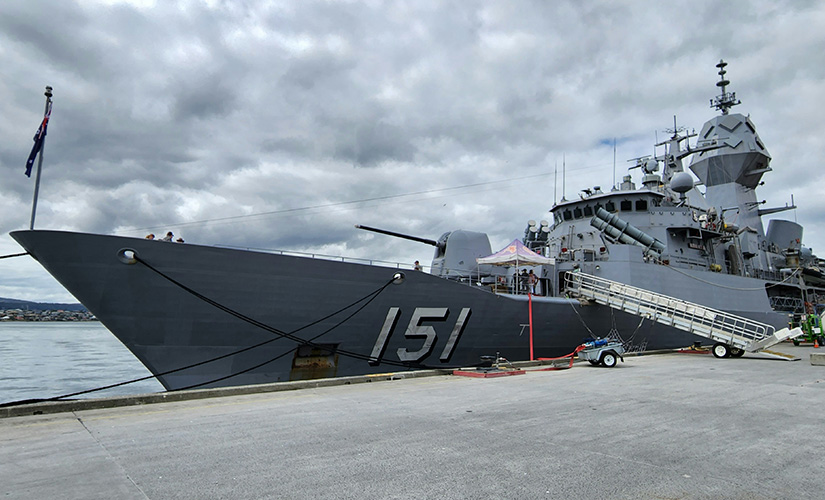A lack of administrative experience was behind the difficulties a NSW-based specialised marine insulation installer found itself facing soon after COVID hit. The decision to appoint Jirsch Sutherland as Voluntary Administrators enabled it to find a solution to its challenges and a pathway towards ongoing viability.
Background

National Insulation has been supplying and installing insulation for marine craft and industrial buildings for more than 20 years. Its client list is impressive and includes the Australian Navy, Sydney Ferries and a number of ASX 200-listed companies. The business has 30 loyal employees, who stayed on when the current owner took over in 2019 – shortly before the pandemic. However, the new owner was unpractised with Australian business regulations – a naivety exacerbated by the trading difficulties experienced by all businesses through the pandemic years, which led to poor administration of the company.
Due to supply chain interruptions caused by the pandemic, the director took steps to diversify the business by establishing a manufacturing facility in his home country of Cambodia. The project required significant capital investment, which ultimately left the business in a precarious financial position. An inability to raise finance to fund the project depleted the working capital of the Australian company and resulted in the appointment of Andrew Spring and Peter Moore from Jirsch Sutherland as Voluntary Administrator.

Solution
Spring says when the business found itself in trouble, the director was the first to admit he had made some mistakes, and potentially “bitten off more than he could chew” due to his lack of understanding around the complexities of funding business expansion internationally. “However, he demonstrated himself to be hard-working and eager to learn in order to get the company back on track,” Spring says.
As well as the supply chain challenges, some of the other issues identified included:
- Disruption to labour resources
- Inability to access capital or finance sufficient to support the business
- Change of federal government causing delays to Navy contracts, which the company relied heavily on
Spring and Moore immediately addressed the issues that were behind the company’s poor performance. Some of the actions undertaken included:
- Sourcing alternative supplier relationships
- Entering into a working capital finance arrangement
- Engaging with new clients such as Ventia and Visy as a way of decoupling the business from its reliance on Navy contracts
- Giving honest appraisals to the director of his administrative shortcomings and providing advisers to assist with the management reporting, compliance and payment control.
During the course of the appointment Jirsch Sutherland:
- continued to trade the business
- liaised with its GRIP (Global Restructuring and Insolvency Professionals) network member firm, DFDL, in Cambodia to identify and value the manufacturing site
- liaised with DFDL to understand the company’s rights in the property in Cambodia and to secure the company’s interests in the property
Spring facilitated the director’s proposal for a Deed of Company Arrangement (DOCA) which was accepted.
“The success of any DOCA proposal is reliant on providing high levels of transparency to creditors, about the background and prospects for the business, to allow them to make an informed decision on its future. In this situation, the ability to work with DFDL, our Cambodian GRIP Partners, not only provided that transparency, but by having an established and trusted relationship, it allowed us to meet the strict timeframes associated with a Voluntary Administration process,” Spring adds.
Results
According to Spring, the DOCA provided for the continuation of the business and an estimated return to creditors of 50 cents in the dollar paid by instalments over a period of 15 months. “As a result of the DOCA, a superior outcome was achieved for the business and its stakeholders,” he says.
Crucially, it resulted in the following:
- Preserved employment for the 30-plus staff
- Continuity of contracts for clients
- A valuable skillset for the Navy being maintained
- Maximisation of creditors’ return
While the nature of the business makes it difficult to provide an extended forecast, there are significant opportunities from ASX-listed and government departments for National Insulation’s services, according to Spring. “Also of benefit is the valuable education the young director received on how to run all facets of the business, operational and administrative, something he was very keen to receive,” he says. “The outcome meant many jobs were saved and the director being able to continue to provide for his family.”


